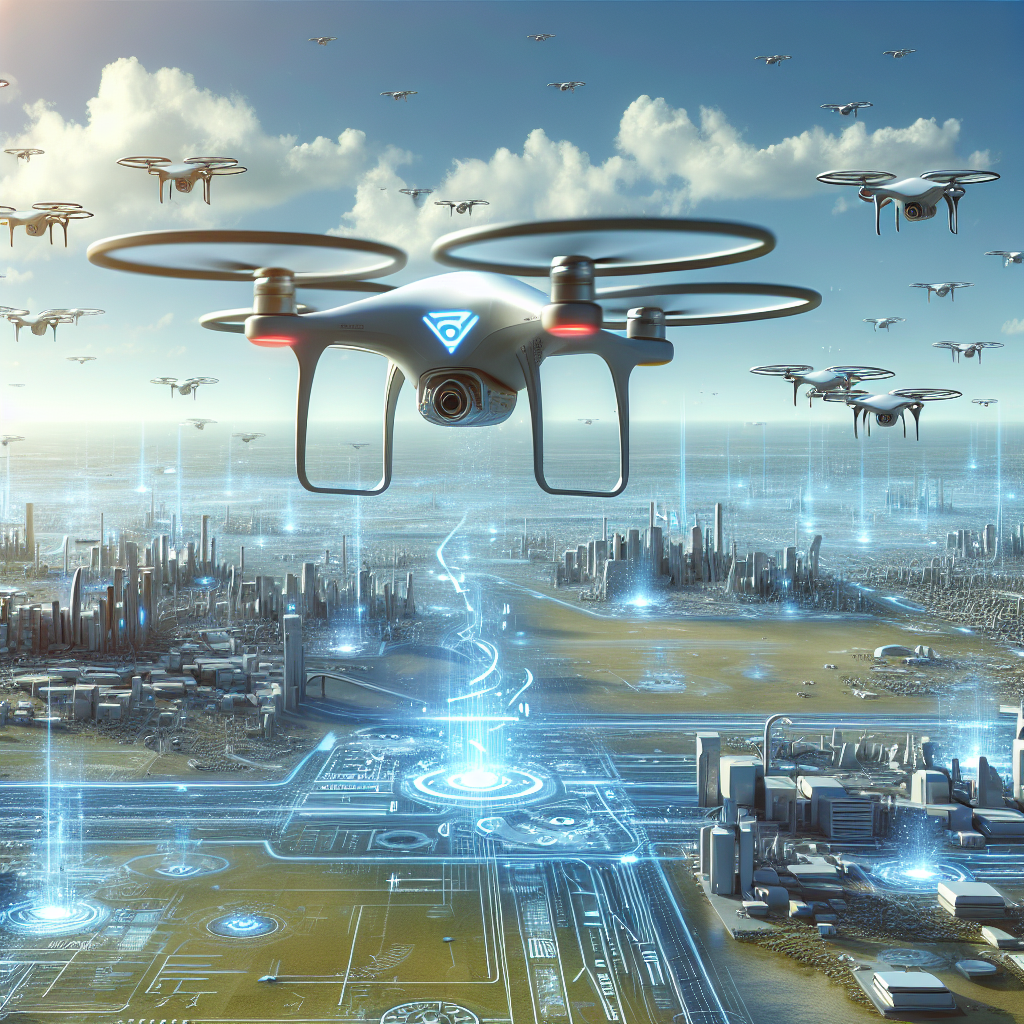The Future of AI in Autonomous Drones
Artificial Intelligence (AI) has been transforming various industries and revolutionizing the way we live and work. One of the most exciting applications of AI is in autonomous drones. These unmanned aerial vehicles are capable of performing tasks without human intervention, thanks to the advanced AI algorithms that power them. In this article, we will explore the future of AI in autonomous drones and the potential impact it can have on various sectors.
AI in autonomous drones is already being used in a wide range of applications, from delivering packages to monitoring crops and conducting search and rescue missions. The combination of AI and drone technology has the potential to revolutionize industries such as agriculture, construction, transportation, and public safety. The ability of drones to fly autonomously and make decisions based on real-time data can increase efficiency, reduce costs, and improve safety in various operations.
One of the key advancements in AI-enabled drones is the ability to navigate and avoid obstacles in real-time. This is made possible by the use of computer vision and machine learning algorithms that enable drones to detect and avoid obstacles such as buildings, trees, and other drones. This capability is essential for drones to operate safely in urban environments and crowded spaces where there are many potential obstacles.
Another important application of AI in autonomous drones is in the area of object detection and tracking. Drones equipped with AI algorithms can identify and track objects such as vehicles, people, and animals in real-time. This can be useful for surveillance, monitoring, and security applications where the ability to track moving objects is essential.
AI-enabled drones also have the potential to revolutionize the way we monitor and manage infrastructure such as roads, bridges, and buildings. Drones equipped with sensors and AI algorithms can inspect infrastructure for signs of wear and tear, damage, or other issues. This can help prevent accidents, reduce maintenance costs, and extend the lifespan of infrastructure assets.
In the future, AI-enabled drones could also be used for autonomous transportation of goods and people. Companies like Amazon and Google are already experimenting with drone delivery services, where drones can deliver packages to customers’ doorsteps in a matter of minutes. With advancements in AI technology, drones could be used for transportation of goods and people in urban areas, reducing traffic congestion and carbon emissions.
FAQs
Q: What are the benefits of using AI in autonomous drones?
A: AI-enabled drones offer several benefits, including increased efficiency, reduced costs, improved safety, and the ability to perform tasks that are difficult or dangerous for humans.
Q: How does AI enable drones to navigate and avoid obstacles?
A: AI algorithms, such as computer vision and machine learning, enable drones to detect and avoid obstacles in real-time by analyzing data from sensors and cameras mounted on the drone.
Q: What are some of the applications of AI-enabled drones?
A: AI-enabled drones can be used in a wide range of applications, including surveillance, monitoring, delivery, agriculture, construction, search and rescue, and infrastructure inspection.
Q: How can AI-enabled drones help in public safety and emergency response?
A: AI-enabled drones can be used for search and rescue missions, disaster response, and surveillance in public safety applications. Drones equipped with AI algorithms can quickly locate and identify people in distress and provide real-time data to first responders.
Q: What are some of the challenges of using AI in autonomous drones?
A: Some of the challenges of using AI in autonomous drones include regulatory issues, privacy concerns, cybersecurity risks, and the need for advanced infrastructure to support autonomous drone operations.
In conclusion, the future of AI in autonomous drones looks bright, with the potential to transform various industries and revolutionize the way we live and work. As AI technology continues to advance, we can expect to see more sophisticated and capable drones that can perform a wide range of tasks autonomously. With the right regulations and infrastructure in place, AI-enabled drones could become an integral part of our daily lives, offering new opportunities and improving efficiency in various sectors.

